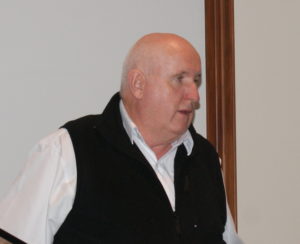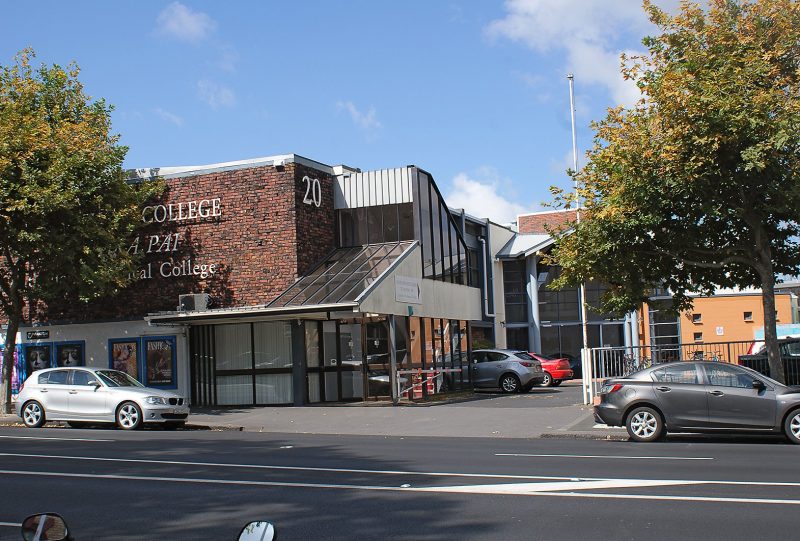A lack of qualified and highly specialised lecturers for Good Shepherd College going forward is a key concern for New Zealand bishops, according to bishops’ conference president Bishop Patrick Dunn.
“We need to work out how we are going to staff the college

Fr Merv Duffy SM
or provide that sort of tertiary teaching staff,” he said.
“Good Shepherd College relies a lot on Fr Merv Duffy (SM). The number of young priests interested in that sort of academic life is very few, not many. We don’t have the priests or religious to staff Good Shepherd College looking out ten to 20 years,” Bishop Dunn said.
Good Shepherd College has a special focus on academic formation for seminarians, but also offers opportunities for others wanting to study Catholic theology and has distance learning options.
Fr Duffy, acting principal of the college, said there had been far fewer priests and religious in training in the last few decades and even fewer have been sent for higher studies.
“A committed core group of academics has kept seminary formation in New Zealand viable. The median age of the priests and religious lecturing at Good Shepherd College is now 67. The next few years will see vacancies open up which will be difficult to fill,” he said.
“The concern of the New Zealand Catholic bishops is that it will be more difficult, and more expensive, to staff Catholic tertiary education in the foreseeable future,” he added.
He said at present, priests and religious sent to “higher ecclesiastical studies” and who work for the Church in New Zealand are paid at the stipend rate, “which is not generous”.
Fr Duffy said the lecturers need to be “both highly qualified and specialised”. Lay students who attain this level of specialisation often do so at considerable expense to themselves.
“They are usually people closely associated with the Church, often having worked in some capacity for a diocese or congregation. If, once qualified, they gain a lecturing position then they have a right to be paid appropriately — at a university lecturer rate rather than the religious stipend,” he said.
Fr Duffy also pointed out that at this level of specialisation, “this highly trained person is well-qualified for only one job in New Zealand, and if someone else is doing the job competently then they are not required”.
Fr Duffy explained that becoming a lecturer at tertiary level in a Catholic institution follows “a long and expensive study pathway, with most of it spent outside New Zealand”.
“To get a bachelor’s degree, a master’s degree, and then a doctorate you need to spend at least nine years in full-time study after secondary school,” he said.
He noted that to deliver the courses required for training a seminarian, the college needs at least the following specialities: Systematic theology, Moral theology, Pastoral theology, Spirituality, Catholic Philosophy, Sacred Scripture, Liturgy, Canon law, and Church History.
He said the normal qualification for lecturing in a degree programme is a doctorate, “though people often start lecturing with a master’s degree and work towards their doctorate”.
“Many individuals who start on this pathway change track. They get bored by the studies, fail the exams, fall in love, get made a bishop, or some other disaster as far as their academic career is concerned. Some get all the way through their studies and then discover that they are not good at, or do not enjoy, the task of lecturing,” Fr Duffy noted.

Reader Interactions